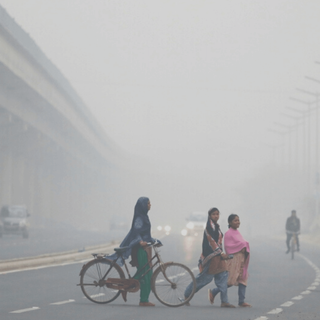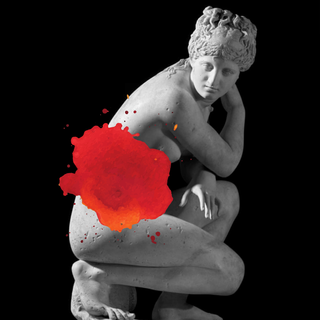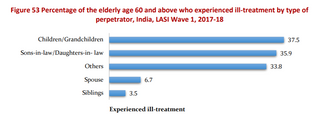One in 20 Indians over the age of 60 faces abuse, a new survey has found. Children, children-in-law, and grandchildren are often the primary caregivers and abusers.
The joint family culture is quite common in India with several generations of family members often staying together under the same roof. Yet, as the survey found, family members were often the ones responsible for the ill-treatment of their elderly. In fact, “elder abuse or ill-treatment is often perpetrated by those who are supposed to take care of the elderly.
The [survey] confirmed that the main caregivers are often the primary abusers,” the authors noted.
Experts suggest that the reason behind the prevalence of elderly abuse by primary caregivers could be a result of the elderly being reluctant to protest either out of stigma, or out of fear of losing the support of their caregivers.
Titled the “Longitudinal Survey of India,” the national survey was conducted by the International Institute for Population Sciences (IIPS), which is an autonomous organization of India’s health ministry. The survey encompassed 72,250 adults over the age of 45 across all Indian states and union territories.
Source: Longitudinal Survey of India
Related on The Swaddle:
Survey Finds India’s Elderly Women Are Financially Vulnerable
Verbal or emotional abuse, as well as neglect — often occurring together — were the most common forms of abuse reported by elders surveyed. Economic exploitation and physical ill-treatment were the other forms of abuse reported by elderly people surveyed.
The new report used data from 2017-2018, but may already be outdated. Warnings of increased abuse of the elderly emerged in June 2020, when a study by the NGO Agewell Foundation found 71% of India’s elderly respondents reported an increase in maltreatment during the country’s Covid19 lockdown, which was also associated with an overall increase in domestic abuse.
According to the World Health Organization (WHO), one in six people over the age of 60 face abuse in community settings across the globe. In addition to the risk of seemingly minor injuries causing serious physical damage to elderly people, their ill-treatment can also lead to psychological consequences, like depression and anxiety. Further, the WHO cites research suggesting that victims of elder abuse are twice as likely as their peers to die prematurely.
Experts note that while the world is reeling from the unprecedented health crisis, the elderly population must be made aware of their rights, and assured of the availability of help and support. “Their children and family members too need to be sensitized about needs and rights of their elderly family members…. At the same time, elderly themselves need to be educated about facilities, support systems, legal provisions and non-formal support network, accessible and available to them,” Himanshu Rath, chairman of Agewell Foundation, told LiveMint in June.





